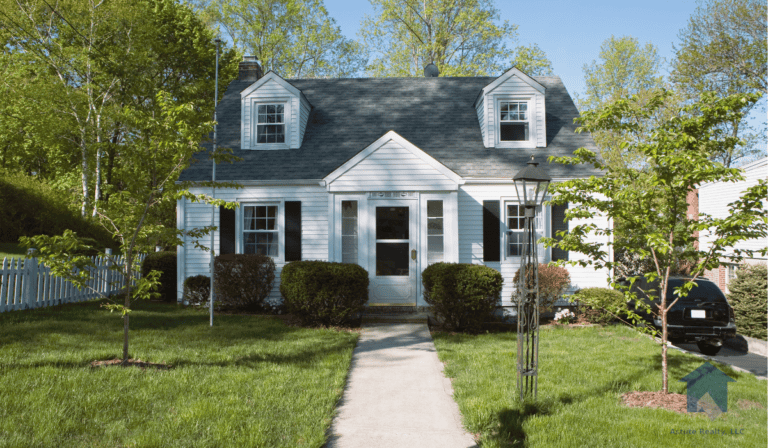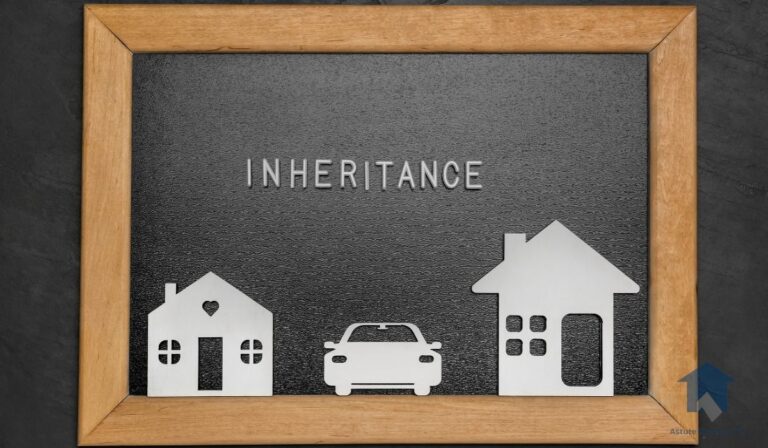Did you know? Baltimore City has a Homestead Tax Credit that can significantly reduce the property taxes on a home you inherit, if you plan to use it as your primary residence.
So, you are not sure if you want to sell an inherited house? No worries, we created a list of alternatives you might want to try out.
There could be family emotions involved and sometimes that can make selling a touchy subject. Also, you’ll have to familiarize yourself with the legal process of selling an inherited house if you want to sell fast without losing too much profit. From our experience, it’s not hard to get everything done but the probate process and selling on the market does take time.
With that said, here are alternative options to selling an inherited house in Baltimore.
Short Summary
- Understanding your inherited property situation in baltimore
- Baltimore is what you could consider as a mixed market; specific neighborhoods have growth due to revitalization, but others remain stable.
- You can convert your inherited house to a rental property.
- You can try house hacking.
- Renovating and flipping is also an option.
- You can move in and make it your primary residence.
- You can utilize a rent-to-own agreement.
- Consider a partial ownership or co-housing arrangement.
- Donate the property for a tax deduction.
- Use the property for a family legacy trust.
Understanding Your Inherited Property Situation In Baltimore
Brief Overview Of The Baltimore Real Estate Market In 2025 And How It Affects Inherited Properties
The Baltimore real estate market in 2025 presents a mixed bag for those inheriting a house. While certain neighborhoods are experiencing growth, driven by revitalization projects and new developments, other areas remain stable. This variation significantly impacts the final sale price you might achieve if selling an inherited property is your ultimate goal.
Understanding the local market trends, including average home prices, days on market, and buyer demand in the specific neighborhood where the inherited home is located, is crucial.
This knowledge will help you gauge the potential return on investment should you decide to sell, or the potential rental income if you choose to lease it out as an investment property. A real estate agent familiar with the local market can provide valuable insights.
Common Challenges Specific To Inherited Homes In Baltimore (Tax Implications, Maintenance Costs, Neighborhood Considerations)
Tax implications are a primary concern because you might owe capital gains tax if you eventually sell the inherited home for more than its fair market value at the time of inheritance. Property taxes also need to be factored in, as Baltimore City has its own rates and assessment schedules.
Maintenance costs can quickly add up, especially if the inherited house has been vacant or neglected. Addressing deferred maintenance, such as roof repairs, plumbing issues, or outdated electrical systems, can be costly.
Furthermore, neighborhood considerations play a vital role. Is the area experiencing an upswing or facing challenges? The condition of the surrounding properties and the overall safety of the neighborhood will influence the property’s desirability and value.
Importance Of Assessing The Property’s Condition, Value, And Potential Before Making Decisions
Before making any decisions about an inherited house, a thorough assessment of its condition, value, and potential is essential. A professional home inspection can reveal hidden problems that could impact its value and lead to costly repairs down the line.
Obtaining a professional appraisal will provide an accurate estimate of the property’s fair market value, which is crucial for tax purposes and for determining a realistic asking price if you decide to sell. Beyond the current condition and value, consider the property’s potential.
Could it be renovated and flipped for a profit? Could it be converted into a rental property to generate passive income? Exploring these possibilities will help you make an informed decision that aligns with your financial goals.
Overview of Baltimore-Specific Regulations That Might Impact Your Inherited Property Decisions
Baltimore has specific local housing laws and regulations that can impact your decisions regarding inherited property. Review local housing laws, particularly those related to property transfers, rental regulations, and building codes, is essential.
For example, if you plan to rent out the property, you’ll need to comply with Baltimore’s rental licensing requirements and ensure the property meets all safety standards. Additionally, be aware of any zoning regulations that may restrict how the property can be used.
Consulting with a real estate attorney familiar with Baltimore’s regulations can help you navigate these complexities and avoid potential legal issues.
Also, remember the Homestead Tax Credit mentioned earlier; if you plan to make it your primary residence, apply promptly!
Option 1: Convert It To Rental Property
Turning your inherited home into a rental, especially in areas like Federal Hill or Canton, can generate strong income due to high demand from young professionals and families. Assess the property, make necessary repairs, set a competitive rate, and market effectively.
A financial breakdown considering income vs. expenses (including mortgage payments, property taxes, property management fees) is crucial.
Rental properties offer tax deductions like mortgage interest and depreciation. Property management companies can handle tenant screening and maintenance.
Option 2: House Hacking
House hacking involves living in part of your inherited property and renting out the rest, offsetting your living expenses. Baltimore’s row houses are ideal, offering basement apartments or multi-unit configurations. Tenants can cover your mortgage payments, property taxes, and utilities.
You must understand local housing laws and zoning. Charles Village, Hampden, and Remington are good locations.
Option 3: Renovate And Flip
Strategic renovation of your inherited house can lead to profit, especially in up-and-coming Baltimore neighborhoods. Assess fair market value after renovations, focusing on high-return updates like kitchens and curb appeal.
You have to budget carefully, get contractor quotes, and factor in permits. Also, you must learn to comply with local housing laws.
Option 4: Move In And Make It Your Primary Residence
Making the inherited home your primary residence can be appealing, especially if the location is desirable. Factor in moving costs, repairs, mortgage payments, and property taxes. Owner-occupancy offers tax benefits through deductions. +
Understand capital gains tax if you sell later; the primary residence exclusion can help. Communicate clearly with family members. Lastly, ensure legal ownership is transferred through the probate process.
Option 5: Utilize A Rent-to-Own Agreement
A rent-to-own agreement can be a creative way to generate income from the inherited home while potentially selling an inherited property in the future. This involves entering into a contract with a tenant who pays rent with an option to purchase the property at a predetermined price within a specific timeframe.
You essentially become a landlord with a built-in exit strategy. The tenant pays a premium on the rent, a portion of which is credited towards the down payment if they choose to exercise their option to buy. This can be particularly appealing to individuals who may not qualify for a traditional mortgage immediately.
In neighborhoods like Pigtown or Highlandtown, where revitalization efforts are ongoing, rent-to-own can attract individuals looking to invest in the area but need time to improve their credit or save for a down payment.
It can provide a steady stream of income while you wait for the tenant to secure financing. Also, the tenant may be responsible for some maintenance tasks, depending on the agreement, reducing your workload..
Option 6: Consider A Partial Ownership Or Co-Housing Arrangement
If family members are involved and emotions are running high, exploring partial ownership or co-housing could be a viable solution. This involves sharing ownership and potentially living in the inherited house with other individuals, whether they are family members or unrelated parties.
You could divide ownership shares among family members, allowing each person to use the property at different times or in different ways. Alternatively, you could establish a co-housing arrangement with unrelated individuals who share common values and a desire to live in a collaborative environment.
This allows multiple family members to maintain a connection to the inherited home, preserving its sentimental value.
This arrangement divides property taxes, maintenance costs, and other expenses among multiple owners, making home ownership more affordable.
Option 7: Transform The Property Into A Short-Term Rental
With Baltimore’s growing tourism industry, transforming the inherited property into a short-term rental (e.g., Airbnb) can be a lucrative option, especially if the property is located near popular attractions or event venues.
You would list the property on platforms like Airbnb or VRBO and rent it out to travelers for short periods. This requires furnishing the property, managing bookings, and providing guest services.
Properties near Inner Harbor, Camden Yards, or Johns Hopkins Hospital can command high rental rates, especially during peak seasons or special events. Alos, this allows you to use the property yourself when it’s not being rented out.
Lastly, it’s similar to long-term rentals, in the sense that you can deduct expenses like mortgage interest, property taxes, insurance, and cleaning fees from your taxable income. Remember passive income
Option 8: Donate The Property For A Tax Deduction
If you’re charitably inclined, donating the inherited property to a qualified non-profit organization can provide a significant tax deduction.
You would transfer ownership of the property to a non-profit organization that aligns with your values. The organization would then use the property for its charitable purposes.
Option 9: Use The Property For A Family Legacy Trust
Creating a family legacy trust can ensure that the inherited home remains within the family for generations to come.
You would establish a trust and transfer ownership of the property to the trust. The trust would then be managed by a trustee who is responsible for preserving the property and distributing its benefits to future generations of your family.
This ensures that the inherited house remains a cherished part of your family’s history. Also, a well-structured trust can minimize estate tax and inheritance taxes for future generations. It would be good if you consult with a tax professional, of course.
Comparing Financial Outcomes Of Different Options For Baltimore Properties
| Option | Initial Investment | Potential Income/Savings | Ongoing Expenses | Tax Implications | Long-Term Financial Impact |
| 1. Convert to Rental Property | Renovation Costs | Rental Income | Mortgage payments (if any), Property taxes, Insurance, Maintenance, Property management fees (if applicable), vacancy costs | Deductible expenses (mortgage interest, property taxes, insurance, repairs, depreciation). Passive Income potentially subject to income tax. | Potential for long-term wealth creation through rental income and property appreciation. |
| 2. House Hacking | Renovation (if any) | Rental Income from tenants offsetting mortgage payments, utilities, etc. | Property taxes, Insurance, Maintenance, Utilities (portion not covered by tenants) | Similar to rental property, but potential for greater tax benefits if you live in the property. | Reduces housing costs, potentially allowing for faster debt repayment or investment in other assets. |
| 3. Renovate and Flip | Renovation Costs | Profit from Sale (Final Sale Price – Renovation Costs – Initial Value – Selling Costs) | Mortgage payments (if any) during renovation, Property taxes, Insurance, Utilities, Staging Costs | Capital Gains Tax on profit. Potential for short term capital gains. | Potential for significant profit, but also risk of loss if the market declines or renovations exceed budget. |
| 5. Rent-to-Own | Minimal | Rental Income with Premium, Potential Final Sale Price at end of agreement. | Property taxes, Insurance, Maintenance (potentially shared with tenant), Legal fees for contract creation | Rental Income taxed as income. Capital Gains Tax if the tenant exercises the option to buy. | Can provide steady income while waiting for a buyer and potentially result in a sale at a predetermined price. |
| 6. Partial Ownership/Co-Housing | Varies | Reduced Personal Housing Costs/ Financial Obligations | Shared Property taxes, Insurance, Maintenance, Utilities | Depends on the specific agreement. Capital Gains Tax if a share is sold later. | Can make homeownership more affordable and preserve family ties, but requires careful planning and communication. |
| 7. Short-Term Rental (Airbnb) | Furnishing Costs | Higher Potential Rental Income Compared to Long-Term Rentals (but more variable). | Property taxes, Insurance, Utilities, Cleaning Fees, Furnishing Replacement, Property management fees (if applicable) | Similar to long-term rentals, but may be subject to additional local taxes and regulations. | Can generate significant income, but requires active management and is subject to market fluctuations and regulations. |
| 8. Donate Property | Minimal | Avoidance of Selling Costs, Potential Reduction in Federal Estate Taxes. | None | Tax Deduction based on fair market value of the property. | Reduces tax liability and supports a charitable cause, but forfeits any potential future income or appreciation. |
| 9. Family Legacy Trust | Legal Fees | Preserves Asset for Future Generations | Ongoing trust management fees, Property taxes, Insurance, Maintenance (paid from trust assets or beneficiary contributions) | Complex. Can minimize estate tax and inheritance taxes for future generations, but requires careful planning and ongoing management. Seek a tax professional. | Ensures the property remains within the family for generations to come, but requires ongoing management and may have tax implications. |
Final Thoughts On Alternative Options To Selling An Inherited House
As it turns out, there are several ways you could do with an inherited house aside from selling it.
Think about your goals, your current situation, and discuss your situation with friends/family to help you make the best decisions possible. Also, don’t skimp on hiring professionals for jobs like assessment, and filing for tax. Like everything else in business, there are risks involved in each option.
Now, if you want to sell fast instead of doing any of the options we mentioned, you can give us a call. Astute is a local cash buyer in Baltimore and we’re prepared to give you a fair cash offer in less than 7 days!
Frequently Asked Questions
What Is The Best Thing To Do With An Inherited House?
Again, it depends on your financial situation, the condition of the house, your goals, and the market.
Do All Heirs Have To Agree To Sell Property In Maryland?
Yes, all heirs have to agree on what they want to do with the property. It gets complicated when a majority decides to sell yet there’s one or a couple of heirs who don’t want to.




